8 Things to Know Before Building a Custom Home
1. Understand Your Own Limitations
Professional builders and designers have the advantage of experience. So many lessons have been learned the hard way.
Question your contractors. Take the time to ask some tough questions, share ideas, and ensure their decisions are backed by evidence. But choose experts and lean into their knowledge. You hired them for a reason.
2. Take the time to review your floor plan from a functional standpoint
Especially if you haven't built a home before, your floorplan process can be a very exciting stage — full of possibility and excitement. It's important to be diligent and thoughtful in this process. It's important to create a beautiful space, but you also want to make sure it's highly functional. Think about how you want to live in the house. Where do you walk in the door? Where do you set your keys? Do you have a coat closet or a coat rack? Go through your everyday activities and picture how and where they'll be taking place. Plan for each thing.
In addition to functionality, think a lot about sizing. What are the sizes of each room and closet? Despite looking proportionate and a good size on paper, it might feel very different in reality.
In the long run, you will save so much headache (not to mention money) if you think through these details and make changes during the drafting phase.
3. Plan For Storage
Storage isn’t really isn't a whole lot of fun. It's much more fun to design a larger living room and kitchen than to design storage. Having nowhere to store your winter clothes, cleaning supplies, and towels can be a problem.
When reviewing your floor plans, look for any extra spaces that could be converted into storage. Your contractor can help you maximize your square footage for better everyday living.
4. Design For Your Future
Look ahead. The things you want now are different from the things you will need later. When building a home you want to live in, think about features that might be valuable in the future: additional bedrooms, a home office, and a more convenient laundry room. Is your family going to expand? Your needs might as well.
5. Add Fun Elements
Custom homes are made up of unexpected decisions. That's what will make your home unique. Stair rails, doorway arches, and windows — look for opportunities to do something subtle and unexpected.
6. Invest In What Could be Tough to Change Later
The items you cannot change later - heated flooring, prewired electrical systems, soundproofing, and good insulation - should be invested now if budget is a top priority. You might not feel like spending money on these things now, they are far more costly to add or change down the road.
7. It Will Most Likely Cost More Than You Expect
The common rule of custom building is it will cost more than you expect. There are typically 3 reasons for going over to budget.
First: Unexpected site problems. There are some things that you can’t discover until you start the process. Like foundation issues. You might find something in the excavation process that requires some costly extra work. Groundwork is something that nobody really wants to spend more money on, but such problems cannot be avoided or predicted. You just have to buck-up and spend the extra money. Maybe you can make up for it somewhere else.
Second: Selections are personal, and they impact everything. Some builders create initial estimates based on builder-grade selections. These aren’t always the highest quality or most aesthetically pleasing choices, so you’ll often choose to make upgrades. Decisions add up. If there are a thousand choices you make throughout the build process, a thousand small upticks can add up to a fairly substantial overage.
When you’re reviewing the builder’s initial quote, be sure to understand the quality level they’ve budgeted for and make adjustments to be more realistic if possible. Understanding what your builder has based their estimate on will help you know if your project has been bid realistically.
Third: Change orders. As you dive into the building process, you’ll discover changes that you want to make. A bathroom feels too small. You’d like to expand the windows. Changes are fairly common, but each adjustment changes the project scope — potentially impacting the timeline and cost. Before you OK a change, understand how it will affect these key items so you aren’t surprised when you get a bill for something like additional framing costs.
8. It Will Most Likely Take Longer Than You Expect
Even the best-laid plans — and most prepared builders — are subject to setbacks. From permits to contractor availability to inspections, there are variables that can push back the completion date. In most situations in life, you can increase efficiency by reducing the number of different people in the mix but that’s not really possible in a custom build where so many different people provide necessary functions.
In addition to the online updates, your builder likely provides, ensure you have regular meetings to touch base on progress, any pending deadlines, or potential hang-ups. This will keep you both on the same page as the project progresses.
Build in some padding. Assume the build will take 20% longer than forecasted. If your project comes in on deadline, perfect. If delays occur (and most assuredly they will), you can take a deep breath and know you planned for this.

